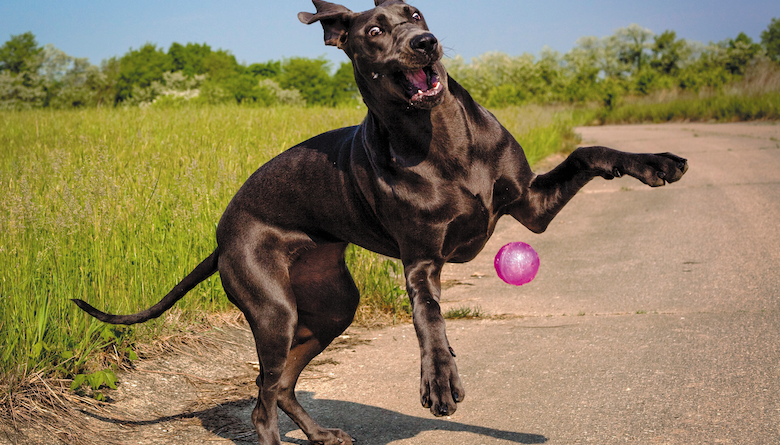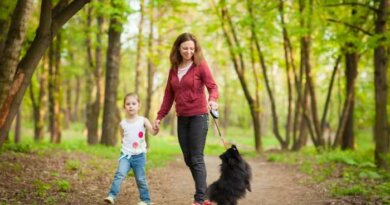How to Deal With Your Dog’s Spring Fever
Spring is here, and as the nights get shorter and the days get longer and warmer, you and your dog can spend more time outdoors. We all get cabin fever during the winter months, and it is always a relief to see the trees start to bud, the flowers begin to bloom and smell that wonderful spring scent in the air.
Dogs who live in areas of extreme temperature changes might need some help acclimating to being outside again and socializing with human and canine friends in the neighborhood. You might find your dog is a bit more excitable than usual as he runs around burning off excess energy and saying hello to everyone he encounters.
Ramp up recall
You might also find that your dog suddenly develops selective hearing and does not come back when called. While your dog might be great at listening and paying attention to you in the home, sensory overload takes over once he is outside. This makes it hard to resist running off after smells, chasing squirrels or playing with other dogs. If your dog has a hard time coming back when called, use a long line to walk him and only take him off the leash when you are sure that he will respond to your recall word. If he has forgotten what it means, here are a few ways you can refresh his memory.
Related: 5 Steps to Get Reliable Recall in a Multi-Dog Household
Recall your dog in a variety of situations every day, not just when you are actively training him. Recall him in the home, outside in the yard and on a long line in the park. Do not miss a chance to praise him if he comes to you without being called. For example, if he makes the decision to get up from his bed and walk over to you, tell him what a good boy he is. When you are playing in the yard and he fetches something and brings it to you, praise him and play his favorite game.
If your dog does not come back in a particular situation, ask yourself what you could have done to make it easier for him to be successful, and go back to basics. Set your dog up for success — don’t put him in situations where he is forced to fail. Build up the recall slowly in distraction-free environments before taking him to places where it is harder for him to listen to you.
Make coming back to you the best thing your dog can ever do. Don’t fall into the trap of getting angry when he does not come back the first time you call him. When he does respond, praise him and, if it is safe, let him go play again. This shows him that coming back does not always mean the leash is put on and fun is over.
Take a good walk each day
Taking your dog for a walk not only exercises him physically but provides an environment that challenges and stimulates his senses, so a good long walk a day is essential for his emotional and mental stability. Exercise is a potent stress reliever for all animals, and a regular walk and outdoor play schedule will enhance a dog’s life immeasurably. Inactivity contributes to destructive behaviors such as chewing, house soiling, excessive barking and other anxiety-based behaviors. Exercise promotes serotonin levels in the amygdala (part of the limbic system responsible for regulating emotions), producing a calming effect, lowering stress and controlling undesirable impulsive behavior.
Related: Yes, Your Dog Can Get Too Many Walks
We can all breathe a sigh of relief as the days get warmer and spring turns into summer, but be aware that being outdoors around people and other dogs increases the risk of social issues and being overwhelmed, particularly with dogs that are not social butterflies. Make sure you observe your dog’s body language at all times, and remove him from any situation where he shows signs of discomfort.
If you always advocate for your dog and avoid places that might cause negative behavior, you will ensure that both of you get the most enjoyment out of the warmer weather.
Top photograph: CREDIT | Getty Images
Read Next: Does My Dog Have Seasonal Allergies?




